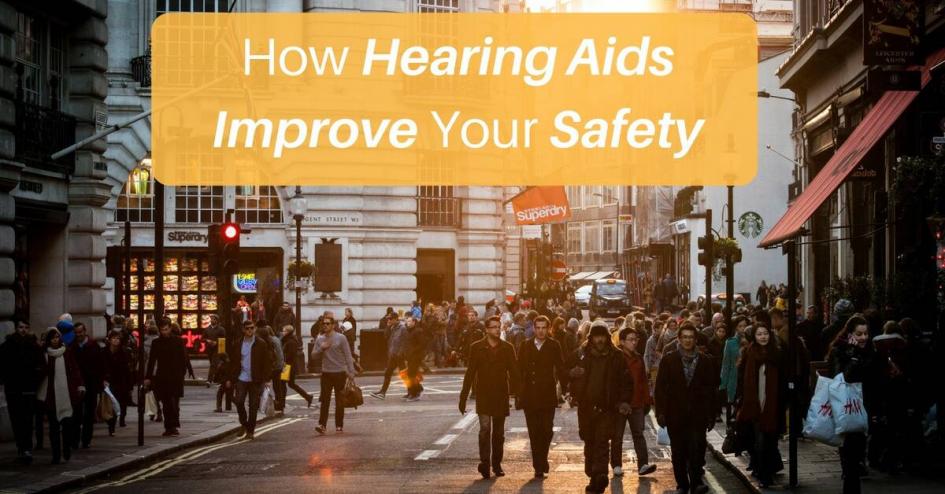
How Hearing Aids Improve Your Safety
Hearing Aids Can Improve Your Safety
Wearing hearing aids can have a positive effect on your life. Studies have shown that they improve health, memory, concentration, confidence and even income.
These wonderful little devices also keep you and your loved ones safe from harm. We’ll take a look at some of the different ways hearing aids can make a big contribution to your safety and security.
Improving your balance
The inner ear is responsible for transmitting sound to the brain, but it also helps us keep our balance. Our hearing helps us to judge space accurately, by giving us “landmarks” or auditory reference points between objects.
When your hearing changes, you may find yourself a little shaky on your feet. This can leave you more prone to falling and suffering injuries. In fact, studies show that hearing loss can lead to a threefold risk of falling.
Experiments conducted by the Washington School of Medicine show that wearing hearing aids improves an older person’s balance and stability. By restoring our sense of spatial awareness, hearing aids can lead to less slips and falls.
Helping you hear better
Our world is made up of quiet and high-pitched noises that alert us to dangers. When our hearing starts to change, we often lose these sounds first. This leaves us at risk and reliant on others to watch out for us.
Wearing hearing aids increases the range of things you are able to hear. As a result, you will be able to react to clues and warnings quickly, and avoid unnecessary accidents and dangerous situations.
At home
Our senses keep us safe. Just as the smell of burning alerts us to an unwatched pot, hearing gives us important clues about what is happening in our environment.
People with untreated hearing loss may find it difficult to hear smoke alarms, doorbells and telephones, leaving them unaware of an emergency until it’s too late. You may not hear a baby crying, a dog barking or a member of your family calling for help. You might also miss the sound of breaking glass or an intruder in your house.
Hearing aids give us access to a wider spectrum of sound. By preserving the details in our sound environment, they give us a clearer picture of what is going on around us. As a result, you and your family will be safer.
Outdoors
Many people with untreated hearing loss feel unconfident when going outside. In public places, you need to be aware of noises all around you. This is especially true when crossing roads, where hazards such as speeding cars, ambulances and fire engines mean you have to react quickly.
Hearing aids enhance the directionality of sound. This means that we have a better chance of hearing a distant sound and identifying where it is coming from.
In public places like shopping centres and train stations, we need to be able to hear announcements, safety alerts and alarms. With untreated hearing loss, it can be hard to distinguish one noise from another in these busy environments. Hearing aids often have programs tailored for noisy situations, which can help you focus on the important sounds when you need to.
In the car
If you are in control of a vehicle, you need to have your senses around you. A slight mistake can have fatal consequences. High-pitched noises like squealing tyres and car horns, and quieter sounds like a car reversing or a distant siren, can often be missed by people with untreated hearing loss.
Wearing hearing aids will make sure that you hear these cues, so you won’t be caught unawares. It also means you won’t be a danger to other people on the road, your passengers and pedestrians.
Some hearing aids have specific programs to enhance in-car conversations. This means that you can continue your conversation with your passengers without needing to take your eyes off the road.
Time for a hearing aid?
Although 1 in 10 people could benefit from hearing aids, only 1 in 30 actually use one. If you’ve been experiencing hearing loss, it may be time to think about trying hearing aids. Not only can they improve your quality of life – they can save it.
If you’d like to arrange a hearing test or speak to one of our audiologists, give us a call on 0131 220 1220 or contact us online.
House of Hearing
0131-220-1220
You don't have to live with untreated hearing loss.
Our Clinics
All House of Hearing clinics are in town centre locations and accessible to public transport and parking. Home visits also available if mobility is an issue.


.png)
.png)
.png)

.png)
